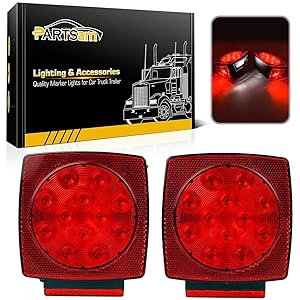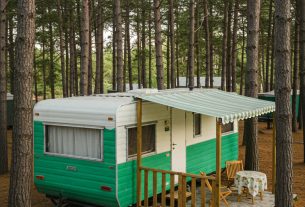When I first became a proud owner of a trailer home, I felt a mixture of excitement and apprehension. A trailer home can be a wonderful option for those seeking a cozy space at a lower cost, but it also comes with its unique set of challenges and responsibilities. One of the most important steps I took after purchasing my trailer was to schedule a thorough inspection. In this article, I want to share my insights on the importance of trailer home inspections, the process involved, and how they can ensure your safety and peace of mind.
Understanding the Importance of Trailer Home Inspections
Many people might underestimate the need for a proper inspection of their trailer home, thinking that it’s just a smaller version of a regular house. However, the reality is that trailer homes, or manufactured homes, have their own set of structural and safety concerns that require expert attention. Here are some critical reasons why you should prioritize an inspection:
- Safety First: The safety of my family and myself is paramount. An inspection can uncover potential hazards such as faulty wiring, gas leaks, and structural weaknesses.
- Long-Term Savings: Investing in an inspection can save you significant money in the long run. Early detection of issues can prevent expensive repairs down the line.
- Insurance Requirements: Many insurance companies require a professional inspection before issuing a policy. Having this documentation can streamline the process.
- Peace of Mind: Knowing that my home is safe and sound gives me the confidence I need to enjoy my living space fully.
The Trailer Home Inspection Process
Now that I’ve established the importance of an inspection, let me walk you through what to expect during the process. A professional inspector will typically focus on several key areas:
1. Structural Integrity
The first thing an inspector will look at is the overall structure of the trailer. This includes:
- Checking the foundation and stability of the home.
- Inspecting for signs of water damage or leaks, particularly around windows and doors.
- Assessing the condition of the roof for any wear or potential leaks.
2. Electrical Systems
Electrical issues are among the leading causes of fires in trailer homes. An inspector will:
- Examine the wiring for any fraying or deterioration.
- Test outlets and circuit breakers to ensure they are functioning correctly.
- Look for proper grounding and bonding of the electrical system.
3. Plumbing and HVAC Systems
The plumbing and heating/cooling systems must be in good working order. An inspector will:
- Check for leaks in pipes and fixtures.
- Inspect the water heater for safety and efficiency.
- Evaluate the heating and air conditioning systems for proper function.
4. Safety Features
Safety features are crucial in any home. The inspector will verify:
- That smoke detectors are installed and functioning.
- That carbon monoxide detectors are present, especially if the trailer uses gas appliances.
- That the home has proper escape routes in case of emergencies.
Statistics That Highlight the Need for Inspections
To further emphasize the significance of trailer home inspections, consider the following statistics:
- According to the U.S. Fire Administration, manufactured homes account for 20% of all residential fire fatalities.
- A report by the National Fire Protection Association states that electrical failures are one of the leading causes of fires in manufactured homes.
- The National Association of Home Builders notes that regular home inspections can save homeowners up to 25% on repair costs over time.
Case Studies: Real-Life Examples of Trailer Home Inspections
Let me share a couple of case studies that illustrate the importance of having a professional inspection done on a trailer home:
Case Study 1: The Hidden Water Damage
After buying a used trailer home, one of my friends decided to skip the inspection to save money. A few months later, they started noticing a musty smell and dampness in the walls. Upon hiring an inspector, they discovered extensive water damage that required costly repairs. Had they opted for an inspection, they could have addressed the issue before it escalated.
Case Study 2: Electrical Failures
Another acquaintance purchased a trailer home that seemed perfect at first glance. However, shortly after moving in, they experienced frequent electrical outages. An inspection revealed outdated wiring that posed a fire hazard. The cost to upgrade the system was significant, but it was much better than dealing with potential disaster.
How to Choose the Right Inspector
Choosing the right inspector is as crucial as the inspection itself. Here are some tips I found helpful when searching for a qualified professional:
- Check Credentials: Look for a licensed and certified inspector with experience in trailer homes.
- Read Reviews: Online reviews and testimonials can provide insight into the inspector’s reputation and reliability.
- Ask for References: Don’t hesitate to ask the inspector for references from previous clients.
- Get a Detailed Quote: Ensure that the quote includes all aspects of the inspection and any follow-up services if needed.
What to Expect After the Inspection
Once the inspection is complete, you will receive a detailed report outlining the findings. Here’s what you can expect:
- Clear documentation of any issues discovered.
- Recommendations for repairs or further evaluations if necessary.
- A summary of the overall condition of your trailer home.
Maintaining Your Trailer Home After Inspection
After investing in an inspection, it’s essential to maintain your trailer home to ensure its longevity. Here are some maintenance tips I follow:
- Regularly Inspect for Issues: Make it a habit to check for signs of wear and tear, such as leaks or cracks.
- Keep Up with Maintenance: Schedule regular maintenance for your HVAC and plumbing systems.
- Stay Informed: Keep abreast of any changes in building codes or safety regulations that may affect your home.
Conclusion: Your Safety is Worth It
In conclusion, trailer home inspections are not just a formality—they are a vital step in ensuring the safety and longevity of your home. By prioritizing this process, you are taking proactive measures to protect yourself and your loved ones. The investment in an inspection can save you from significant headaches and expenses down the line.
So, don’t wait any longer. Schedule your expert check-up today and ensure your safety and peace of mind. Remember, a small investment now can lead to a much safer and more enjoyable living environment.
FAQ
Q: How often should I have my trailer home inspected?
A: It’s generally recommended to have your trailer home inspected every 3 to 5 years, or sooner if you notice any signs of trouble.
Q: What should I do if the inspection report reveals issues?
A: Address the issues as soon as possible. Consult with professionals to understand the severity and get estimates for repairs.
Q: Are trailer home inspections expensive?
A: The cost can vary based on location and the size of your home, but it’s a worthwhile investment for your safety.
If you found this article helpful, please consider signing up for our newsletter for more tips and insights on trailer home living. Share this article with your friends and on social media to help spread the word about the importance of trailer home inspections!
Partsam 12V Submersible Square Led Trailer Light,Red White LED Stop Turn Tail License Brake Running Light Lamp for Trailers Under 80" Boat Trailer Truck Marine Camper RV Snowmobile,IP68,DOT Compliant
$16.99 (as of October 11, 2025 07:03 GMT -03:00 - More infoProduct prices and availability are accurate as of the date/time indicated and are subject to change. Any price and availability information displayed on [relevant Amazon Site(s), as applicable] at the time of purchase will apply to the purchase of this product.)
Sign up for our newsletter and stay up to date with exclusive news
that can transform your routine!





